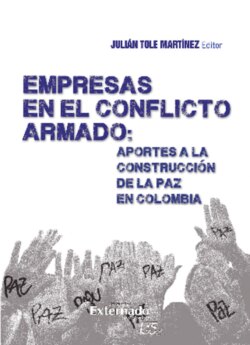Читать книгу Empresas en el Conflicto Armado : Aportes a la Construcción de la paz en Colombia - Mary Martin Beth - Страница 11
На сайте Литреса книга снята с продажи.
ABSTRACT
ОглавлениеSince the first discussions of the 1991 Constitution, the neoliberal ideology of the Washington Consensus has had a great influence on Colombian political, economic, and legal life. However, the model of the social market economy incorporated in this Constitution not only guarantees the freedom of enterprise, the deregulation and opening of markets, the protection and promotion of foreign investment, etc.: it also contains a series of mandates constitutional rights, as the achievement and maintenance of the “right to peace”. Undoubtedly, the protection of human rights becomes more urgent in the context of the Colombian conflict and / or post-conflict. Precisely, this study focuses on analyzing the different roles of transnational companies: victimizer, victim, and peacebuilder. In order to understand these roles, we start from the relationships that the economic activities of these companies and human rights have had historically in the Colombian conflict. Finally, it is proposed that the United Nations Guiding Principles: protecting, respecting and remedying, become an instrument to guarantee the “right to peace”, which allows building a new business culture of human rights, where transnational companies in Colombia comply with its social function, by implementing public policies of the National Action Plan, as a management and control tool for compliance with the Peace Agreements, especially the Agreement number 1: “Hacia un Nuevo Campo Colombiano: Reforma Rural Integral”.
Keywords: transnational companies; human rights; Peace Agreements; National Action Plan; Ruggie Principles.
